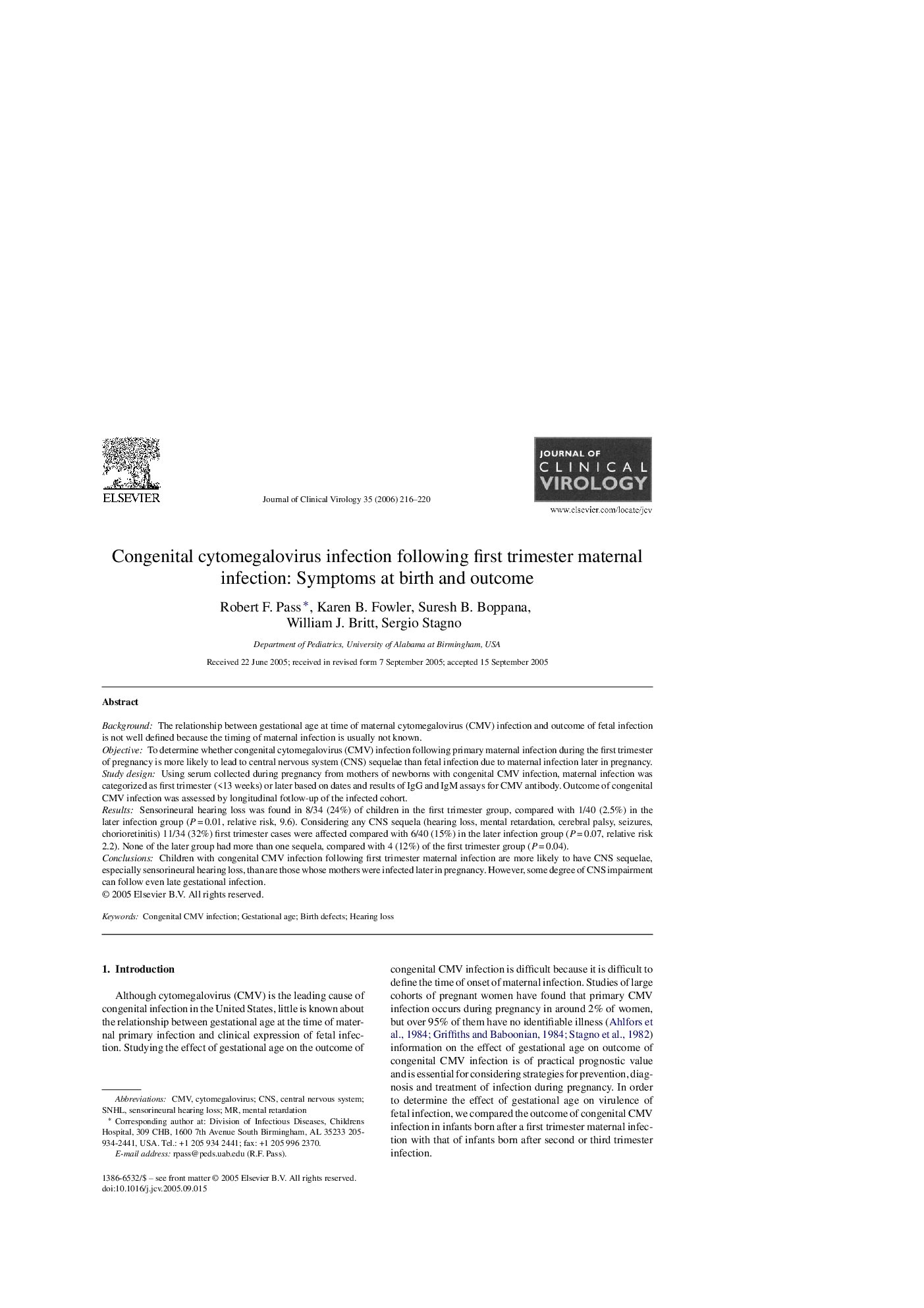| Article ID | Journal | Published Year | Pages | File Type |
|---|---|---|---|---|
| 3371270 | Journal of Clinical Virology | 2006 | 5 Pages |
BackgroundThe relationship between gestational age at time of maternal cytomegalovirus (CMV) infection and outcome of fetal infection is not well defined because the timing of maternal infection is usually not known.ObjectiveTo determine whether congenital cytomegalovirus (CMV) infection following primary maternal infection during the first trimester of pregnancy is more likely to lead to central nervous system (CNS) sequelae than fetal infection due to maternal infection later in pregnancy.Study designUsing serum collected during pregnancy from mothers of newborns with congenital CMV infection, maternal infection was categorized as first trimester (<13 weeks) or later based on dates and results of IgG and IgM assays for CMV antibody. Outcome of congenital CMV infection was assessed by longitudinal fotlow-up of the infected cohort.ResultsSensorineural hearing loss was found in 8/34 (24%) of children in the first trimester group, compared with 1/40 (2.5%) in the later infection group (P = 0.01, relative risk, 9.6). Considering any CNS sequela (hearing loss, mental retardation, cerebral palsy, seizures, chorioretinitis) 11/34 (32%) first trimester cases were affected compared with 6/40 (15%) in the later infection group (P = 0.07, relative risk 2.2). None of the later group had more than one sequela, compared with 4 (12%) of the first trimester group (P = 0.04).ConclusionsChildren with congenital CMV infection following first trimester maternal infection are more likely to have CNS sequelae, especially sensorineural hearing loss, than are those whose mothers were infected later in pregnancy. However, some degree of CNS impairment can follow even late gestational infection.
